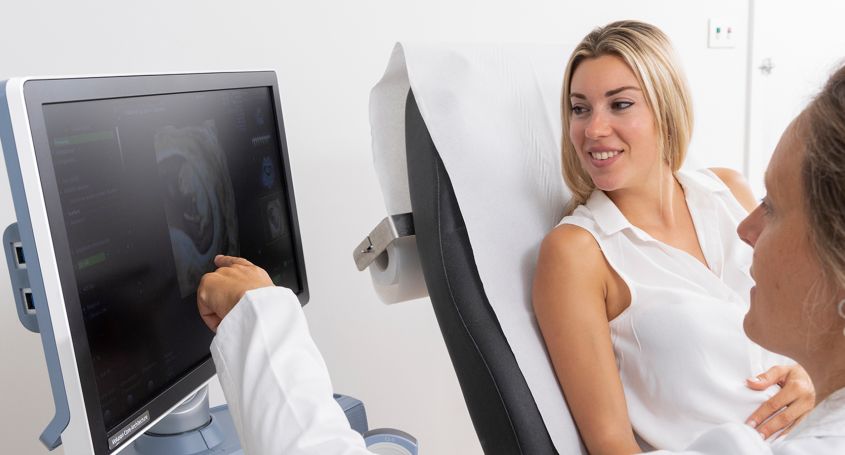The term biochemical miscarriage is unfamiliar to many people. Therefore, when it occurs, many questions arise: what are the consequences, does it pose a problem for achieving a new pregnancy, when can you try again? In this post we answer all your questions.
What is a biochemical pregnancy?
A biochemical pregnancy is an early miscarriage that occurs when, after the fertilisation of an ovum and the implantation of the embryo in the uterus, the development process of the embryo is interrupted after a few days. It is also known as biochemical abortion or micro-abortion.
In all cases the sperm fertilises the egg, the embryo is formed and develops until day 6, when the embryo implants in the uterus. It is then that the beta-hCG hormone (human chorionic gonadotropin) begins to be synthesised and, for this reason, the pregnancy test is positive. However, the pregnancy is never visualised ultrasonographically.
Why does biochemical abortion occur?
It is difficult to know exactly what causes the embryonic development to stop, basically because the embryonic remains are eliminated with the menstrual period and cannot be analysed. However, possible causes may include
- Anatomical abnormalities in the mother's uterus.
- Hormonal problems.
- Genetic alterations in the embryo after fertilisation.
- Genetic alterations in the egg or sperm.
- Unhealthy lifestyles of the parents: smoking, alcohol consumption, unbalanced diet, exposure to toxic substances, family and emotional instability, stress...
Symptoms of biochemical abortion
Among the most common symptoms are abdominal pain, the expulsion of clots with menstruation, small contractions and back pain. Due to the short gestation period, the most common symptoms of a biochemical pregnancy are that there are hardly any symptoms and that these are confused with the onset of the menstrual period.
Biochemical abortion and IVF
Biochemical miscarriage is often mistakenly associated as a problem caused by fertility treatment. However, micro-miscarriages can occur both after a natural pregnancy and after IVF treatment. What happens is that most of the time, in natural pregnancy, it goes unnoticed because no pregnancy test is performed and it is mistaken for a delay in menstruation.
Patients who undergo IVF know more about biochemical pregnancies, as they take a pregnancy test 8-10 days after the embryo transfer, which is positive because of the amount of beta-hCG it picks up. But when a second confirmation is performed a few days later, pregnancy is ruled out as it does not increase exponentially as it should.
When does the cycle resume?
After a biochemical abortion there is no need for curettage or medication. The woman's menstrual cycle resumes normally after 1 to 2 weeks. It all depends on the level of beta-hCG and progesterone in the blood. For the menstrual cycle to resume and ovulation to take place, these hormone levels must fall back to basal values.
How long should one wait for a new pregnancy?
A biochemical pregnancy does not decrease the chances of becoming pregnant again. So, if the menstrual cycle resumes normally, a new pregnancy can be attempted after two menstrual periods. In any case, it is best to consult a specialist and follow his or her instructions, as it depends on the possible causes and the emotional situation of the couple.















